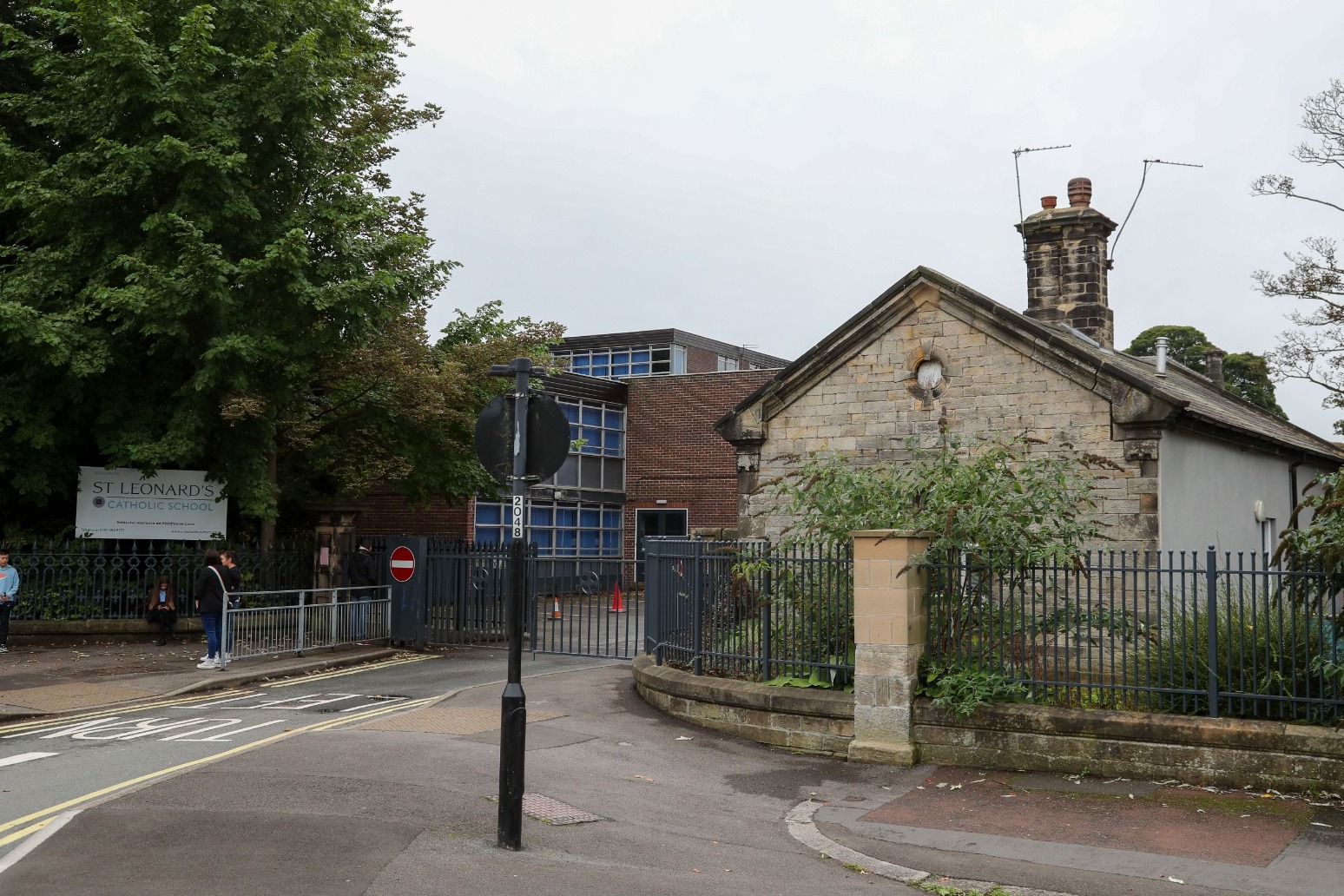
Call to increase exam grades for pupils at schools worst hit by concrete crisis
Education experts say they should have their GCSE and A-level results uplifted by up to 10%
St Leonard’s Catholic School in Durham is frequently among the top-performing state schools in the North East at GCSE level, but at the start of the academic year, teaching plans were wrecked after the potentially dangerous reinforced autoclaved aerated concrete (Raac) was found in several buildings.
Exam boards have refused to make allowances for pupils sitting their GCSEs and A-levels this summer, despite the students and teachers facing a litany of problems at Raac-affected schools.
A study of St Leonard’s by education experts from Durham University, published on Thursday, concluded: “The Government, Ofqual, and exam boards need to devise a plan to relieve the anxiety of the students in this school and any others like it, and offer them qualification outcomes equivalent to what would have happened in the absence of the crisis.”
Its authors, Professors Stephen Gorard and Nadia Siddiqui from the university’s Evidence Centre for Education, said the pupils’ exam grades could be fairly increased by up to 10% this summer.
They said: “The Department for Education could perhaps direct that something like this takes place as part of their package of measures to help those few schools faced with the worst of the Raac crisis.”
Their report found that the school had to shut at very short notice in September and no teaching took place in the first week.
Online lessons started after that, with a slow resumption of face-to-face classes in often cramped conditions, while Years 7 and 8 are taught off-site at Ushaw College, a former seminary which is a four-mile bus trip away.
The school sports hall has been divided into classrooms but the lack of ceilings makes the acoustics poor, and pupils struggle to hear what teachers are saying.
In English and maths, pupils were taught in classes of 120 and recent internal assessments showed students scored around a grade lower than expected in tests.
In other exam subjects, pupils are said to be weeks behind in the curriculum.
A science teacher told the authors: “I cannot do much lab work now.
“Students hate science now as there are no experiments and lab activities for them.
“This would impact on their academic performance.”
Head boy James Smith, who wants to study physiotherapy at university after his A-levels this summer, said: “The lack of suitable space in the school is really starting to have an impact.
“There is such a demand for space that pupils are searching for classrooms in their free periods, some students are going to local cafes to study, or having to go home and then return for later lessons.
“None of this is an effective way of learning and is very concerning when we are only five months away from our exams.
“I would urge the Government to work with exam boards to allow for the continued disruption we are facing.”
Meanwhile, pupils are aware of the stress teachers are under.
One said: “Teachers are tired and exhausted. It is so difficult to teach in sports halls where teachers have to talk loudly but still we cannot hear them clearly at the back row.”
A Year 11 pupil worried about how they will do at GCSE, saying: “My friends in other schools have done more things than we have here and they are far ahead from us.
“I am worried that my results would not be as good as I want because we have not learned things properly.”
Mary Kelly Foy, Labour MP for Durham, has campaigned for parents and pupils throughout the crisis.
She said: “Pupils have endured 17 weeks of disruption to their education, which has been no fault of their own.
“This clearly affects all students massively, but for those who will sit exams this year it is completely unfathomable why the Government, Ofqual nor exam boards are prepared to offer reasonable adjustments that reflect the severe level of disruption they have faced.
“Teachers are burning out, they’re doing everything they can to support their pupils but their energy and motivation is finite and their wellbeing is suffering.”
Nick Hurn, CEO of the Bishop Wilkinson Catholic Education Trust which runs the school, urged the Department for Education to re-think.
He said: “We don’t accept that the minister cannot intervene, as precedent was set during Covid.
“In fact, I would go as far to say that school and trust staff have felt like we were going through the pandemic again, but on our own.
“We expect a measured and reasonable response to the report.”
A Department for Education spokesperson said: “The safety of staff and pupils is paramount, and we have been working at pace with schools, including St Leonards, to identify Raac and minimise disruption to pupils’ education.
“Alongside Ofqual we have worked with awarding organisations to help facilitate discussions with affected schools. We have asked awarding organisations to, where possible, agree longer extensions for coursework and non-examined assessment so that schools have as much time as possible to complete this important part of pupils’ learning and qualifications.”
Published: by Radio NewsHub